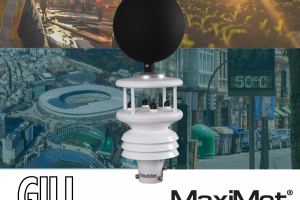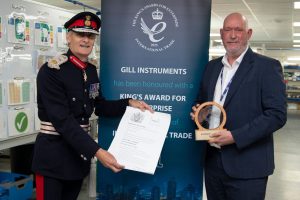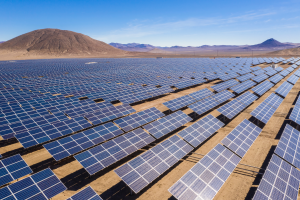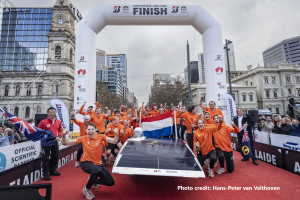After five intense days and more than 3,000 km across the Australian outback, the Brunel Solar Team was the first to cross the finish line in Adelaide, claiming their eighth world title at the Bridgestone World Solar Challenge.
This year’s Challenge was unlike any before, with weather monitoring playing a bigger role than usual in race strategy. For the first time, the competition took place in August, two months earlier than usual, shifting the event into the Australian winter.
As a result, teams not only had less time to design, build and test their cars, but also had to contend with unfamiliar weather conditions. On top of this, new regulations required solar cars to carry batteries three times smaller than in previous years, placing even greater importance on race strategy.
As expected, the weather proved to be a decisive factor. Teams faced everything from cool temperatures and strong winds to heavy rain and overcast skies.
To meet these challenges, the Brunel Solar Team relied on the Gill MaxiMet GMX500 compact weather station, installed on their Mission Control vehicle travelling just behind Nuna 13. The GMX500 delivered real-time environmental and performance data, including GPS location, ambient temperature, atmospheric pressure, wind speed and direction. Its compact design made it an ideal fit for deployment on moving convoy vehicles.
Armed with this information, the team was able to validate and refine weather predictions throughout the race, optimising both strategy and performance on the move.
Nuna 13 itself was equipped with two aerodynamic fins: a canopy fin and a swordfin that enabled the car to “sail” on the wind and gain speed without using more battery power.
“The innovations that gave us an edge over the competition were our two fins. With certain crosswinds, we use them as sails, generating propulsion from wind energy” commented Merijn Kroon, Partnership, Brunel Solar Team. “To use them effectively, we need very precise data in wind angles and gusts and Gill MaxiMet weather station provided this data. Without it, we would not have been able to come out on top.”
In the final stretch, weather conditions were particularly demanding. “Unbelievable, we actually pulled it off, what a battle,” said Martijn Boonen, who drove Nuna 13 across the line. “These last kilometres were nerve-racking with heavy rain, lots of traffic, and our rivals right on our tail. We gave everything, and now we are world champions. I’m super proud of our team.”












